कर्मचारी चयन आयोग की आधिकारिक अधिसूचना ने 2024 के लिए SSC CGL सिलेबस की आउटलाइन तैयार की है। परीक्षा में उत्कृष्टता प्राप्त करने के लिए एक प्रभावी रणनीति बनाने के लिए उम्मीदवारों को विशिष्ट पाठ्यक्रम और परीक्षा संरचना की पूरी समझ होनी चाहिए। SSC CGL सिलेबस को दो टियरों, अर्थात् टियर 1 और टियर 2 में विभाजित किया गया है। इन टियरों को अलग-अलग सेक्शनों में विभाजित किया गया है। उम्मीदवारों को वांछित पद हासिल करने के लिए दोनों चरणों को सफलतापूर्वक पास करना होगा।
उम्मीदवारों को इस तरीके से तैयारी शुरू करने की आवश्यकता है। उम्मीदवारों को इन विषयों के अलावा अपनी टाइपिंग क्षमताओं और कंप्यूटर विशेषज्ञता में भी सुधार करने की आवश्यकता है। यह वह जगह है जहाँ आप मुख्य विषयों की सूची और विषय के अनुसार विभाजित संपूर्ण पाठ्यक्रम पा सकते हैं।
SSC CGL सिलेबस 2024
सिलेबस में विशिष्ट विषयों और अवधारणाओं को शामिल किया गया है जिनका परीक्षण परीक्षा के विभिन्न स्तरों पर किया जाएगा। SSC CGL सिलेबस 2024 से खुद को परिचित करना न केवल आपकी तैयारी का मार्गदर्शन करेगा बल्कि आपको अपनी ताकत और कमजोरियों को पहचानने में भी मदद करेगा। उम्मीदवारों को अपनी तैयारी अभी शुरू करने के लिए अगले कुछ सेक्शनों में दिए गए टियर 1 और टियर 2 के लिए विस्तृत SSC CGL 2024 सिलेबस को पढ़ना चाहिए।
SSC CGL चयन प्रक्रिया 2024
उम्मीदवारों को CGL परीक्षा के लिए आवेदन करने से पहले चयन प्रक्रिया के बारे में पता होना चाहिए। SSC CGL भर्ती 2024 एक बहु-चरणीय प्रक्रिया होगी। दस्तावेज़ सत्यापन के लिए पात्र होने के लिए उम्मीदवारों को टियर 1 के साथ-साथ टियर 2 स्तर की परीक्षा भी उत्तीर्ण करनी होगी। SSC CGL 2024 चयन प्रक्रिया नीचे उल्लिखित है:
टियर 1- कंप्यूटर आधारित परीक्षण
⇓
टियर 2- कंप्यूटर आधारित परीक्षण
⇓
टियर 2 में 2 पेपर यानी पेपर- I और पेपर- II शामिल हैं।
⇓
डेटा एंट्री स्पीड टेस्ट को पेपर III में 15 मिनट के लिए मॉड्यूल II में एक डेटा एंट्री टास्क के रूप में शामिल किया गया है।
टियर 1 परीक्षा के लिए SSC CGL सिलेबस 2024
टियर 1 परीक्षाओं के लिए SSC CGL सिलेबस में 4 सेक्शन यानी जीए/जीके, मात्रात्मक योग्यता, Eng. Language, and Comprehension और तर्क शामिल हैं। विषयवार SSC CGL सिलेबस 2024 का विवरण नीचे दिया गया है:
जनरल इंटेलिजेंस और रीज़निंग के लिए SSC CGL सिलेबस
यदि तैयारी सही तरीके से की जाए तो रीज़निंग CGL टियर 1 परीक्षा के उच्चतम स्कोरिंग सेक्शनों में से एक है। जनरल इंटेलिजेंस और रीजनिंग के लिए विषय-वार सिलेबस नीचे देखें।
- Analogies
- Similarities and Differences
- Space Visualization
- Spatial Orientation
- Problem-Solving
- Analysis
- Judgment
- Decision-Making
- Visual Memory
- Discrimination
- Observation
- Relationship Concepts
- Arithmetical Reasoning
- Figural Classification
- Arithmetic Number Series
- Non-Verbal Series
- Coding and Decoding
- Statement Conclusion
- Syllogistic Reasoning
- Semantic Analogy
- Symbolic/Number Analogy
- Figural Analogy
- Semantic Classification
- Symbolic/Number Classification
- Figural Classification
- Semantic Series
- Number Series
- Figural Series
- Word Building
- Coding & Decoding
- Numerical Operations
- Symbolic Operations
- Trends
- Space Orientation
- Space Visualization
- Venn Diagrams
- Drawing Inferences
- Punched Hole/Pattern Folding & Un-folding
- Figural Pattern Folding and Completion
- Indexing
- Address Matching
- Date & City Matching
- Classification of Center Codes/Roll Numbers
- Small & Capital Letters/Numbers Coding, Decoding, and Classification
- Embedded Figures
क्वांटिटेटिव एप्टीट्यूड के लिए SSC CGL सिलेबस 2024
इस सेक्शन में कई अवधारणाओं पर प्रश्न पूछे जाते हैं। इस विषय की तैयारी के लिए बहुत अधिक सीखने, अभ्यास और रिवीज़न की आवश्यकता होती है। उम्मीदवार यहां क्वांटिटेटिव एप्टीट्यूड के लिए CGL सिलेबस देख सकते हैं।
- Computation of whole numbers
- Fractions and relationships between numbers
- Profit and Loss
- Time and distance
- Time & Work
- Percentage
- Ratio & Proportion
- Discount
- Partnership Business
- Mixture and Alligation
- Square roots
- Averages
- Graphs of Linear Equations
- Triangle and its various kinds of centers
- Congruence and similarity of triangles
- Interest
- Basic algebraic identities of School Algebra & Elementary surds
- Circle and its chords
- Regular Polygons,
- Circle,
- Right Prism,
- Right, Circular Cone,
- Right, Circular Cylinder,
- Sphere,
- Heights and Distances
- Hemispheres,
- Rectangular Parallelepiped
- Regular Right Pyramid with triangular or square base
- Histogram
English Language and Comprehension के लिए SSC CGL सिलेबस
भले ही हम अपने दैनिक जीवन में अक्सर English language का उपयोग करते हैं, इस सेक्शन में पूछे गए प्रश्नों के लिए तैयारी के लिए एक विशिष्ट रणनीति की आवश्यकता होती है। हमने नीचे सभी विषयों के लिए English Language and comprehension के लिए SSC CGL सिलेबस दिया है।
- Phrases and Idioms
- One-word Substitution
- Sentence Correction
- Error Spotting
- Fill in the Blanks
- Spelling Correction
- Reading Comprehension
- Synonyms-Antonyms
- Active Passive
- Sentence Rearrangement
- Sentence Improvement
- Cloze Test
जनरल अवेयरनेस के लिए SSC CGL सिलेबस
हाल के वर्षों में, SSC CGL पेपर के सामान्य जागरूकता में करेंट अफेयर्स की भूमिका बढ़ गई है। सामान्य जागरूकता भी एक उच्च स्कोरिंग सेक्शन हो सकता है जिसके लिए हमने SSC CGL सिलेबस नीचे दिया है।
- History
- Culture
- Geography
- Economic Scene
- General Policy & Scientific Research
- Science
- Current Affairs
- Books and Authors
- Sports
- Important Schemes
- Important Days
- Portfolios
- People in News
- India and its Neighboring Countries
- Questions about History, Culture, Geography, Economic Scene, General Policy & Scientific Research
- Questions about Science, Current Affairs, Books and Authors, Sports, Important Schemes, Important Days, Portfolios, People in the News
SSC CGL टियर 2 सिलेबस 2024
आयोग ने हाल ही में परीक्षा पैटर्न में कई बदलाव किए हैं यानी परीक्षा केवल 2 चरणों यानी टियर 1 और टियर 2 में आयोजित की जाएगी। उम्मीदवारों को नीचे उल्लिखित विस्तृत SSC CGL टियर 2 सिलेबस को अवश्य पढ़ना चाहिए।
- पेपर I (सभी पदों के लिए अनिवार्य),
- सांख्यिकी एवं कार्यक्रम कार्यान्वयन मंत्रालय में कनिष्ठ सांख्यिकी अधिकारी (JSO) के पद के लिए आवेदन करने वाले उम्मीदवारों के लिए पेपर II
- पेपर-I के सेक्शन-III के मॉड्यूल-II को छोड़कर, वस्तुनिष्ठ प्रकार, बहुविकल्पीय प्रश्न
पेपर 1 के लिए SSC CGL टियर 2 सिलेबस 2024
जैसा कि ऊपर बताया गया है, यह पेपर सभी उम्मीदवारों के लिए अनिवार्य है और कुल 390 अंकों का होता है। इसलिए यह महत्वपूर्ण है कि उम्मीदवारों को पेपर के विभिन्न सेक्शनों में पूछे गए विषयों के बारे में पता होना चाहिए। सभी विषयों के लिए नीचे दी गई तालिका में पेपर 1 के लिए CGL टियर 2 सिलेबस की जाँच करें।
| Section | Module | Topics |
| Section I | Mathematical Abilities | Number Systems: Computation of Whole Numbers, Decimals and Fractions, and Relationship between Numbers.
Fundamental arithmetical operations: Percentages, Ratio and Proportion, Square roots, Averages, Interest (Simple and Compound), Profit and Loss, Discount, Partnership Business, Mixture and Alligation, Time and distance, Time and Work. Algebra: Basic algebraic identities of School Algebra and Elementary surds (simple problems) and Graphs of Linear Equations. Geometry: Familiarity with elementary geometric figures and facts: Triangle and its various kinds of centers, Congruence and similarity of triangles, Circle and its chords, tangents, angles subtended by chords of a circle, common tangents to two or more circles. Mensuration: Triangle, Quadrilaterals, Regular Polygons, Circle, Right Prism, Right Circular Cone, Right Circular Cylinder, Sphere, Hemispheres, Rectangular Parallelepiped, Regular Right Pyramid with triangular or square Base. Trigonometry: Trigonometry, Trigonometric ratios, Complementary angles, Height, and distances (simple problems only) Standard Identities like sin2θ + cos2θ=1, etc Statistics and probability: Use of Tables and Graphs: Histogram, Frequency polygon, Bar-diagram, Pie-chart; Measures of central tendency: mean, median, mode, standard deviation; calculation of simple probabilities |
| General Intelligence and Reasoning |
Semantic Analogy Symbolic operations Symbolic/Number Analogy Trends Figural Analogy Space Orientation and Semantic Classification Venn Diagrams Symbolic/ Number Classification Drawing inferences Figural Classification Punched hole/ pattern-folding & unfolding Semantic Series Figural Pattern folding and completion Number Series Embedded figures Figural Series Critical Thinking Problem-Solving Emotional Intelligence Word Building Social Intelligence Coding and de-coding Numerical operations |
|
| Section II | English Language And Comprehension |
Spot the error Fill in the blanks Synonyms Antonyms Spelling/ detecting misspelled words Idioms & phrases One word substitution Improvement of sentences Active/ passive voice of verbs Conversion into Direct/Indirect narration Shuffling of sentence parts Shuffling of sentences in a passage Cloze passage Comprehension passage |
| General Awareness |
India and its neighboring countries especially pertaining to History, Culture, Geography, Economic Scene, General Policy & Scientific Research Science Current Affairs Books and Authors Sports Important Schemes Important Days Portfolio People in News |
|
| Section II | Computer Proficiency |
Computer Basics: Organization of a computer, Central Processing Unit (CPU), input/ output devices, computer memory, memory organization, backup devices, PORTs, Windows Explorer. Keyboard shortcuts. Software: Windows Operating system including basics of Microsoft Office like MS Word, MS Excel PowerPoint, etc. Working with the Internet and e-mails: Web Browsing and searching, Downloading and uploading, Managing an E-mail Account, e-banking Basics of networking and cyber security: Networking devices and protocols, Network and information security threats (like hacking, viruses, worms, Trojans, etc.), and preventive measures. |
पेपर 2 के लिए SSC CGL टियर 2 सिलेबस 2024
हमने सभी विषयों के लिए उम्मीदवारों की आसानी के लिए इस तालिका में पेपर 2 के टियर 2 के लिए SSC CGL सिलेबस दिया है।
| Subject | Topics |
| Statistics |
Collection, Classification, and Presentation of Statistical Data – Primary and Secondary data, Methods of data collection; Tabulation of data; Graphs and charts; Frequency distributions; Diagrammatic presentation of frequency distributions. Measures of Central Tendency – Common measures of central tendency – mean median and mode; Partition values- quartiles, deciles, percentiles. Measures of Dispersion– Common measures of dispersion – range, quartile deviations, mean deviation, and standard deviation; Measures of relative dispersion. Moments, Skewness, and Kurtosis – Different types of moments and their relationship; the meaning of skewness and kurtosis; different measures of skewness and kurtosis. Correlation and Regression – Scatter diagram; simple correlation coefficient; simple regression lines; Spearman’s rank correlation; Measures of association of attributes; Multiple regression; Multiple and partial correlations (For three variables only). Probability Theory – Meaning of probability; Different definitions of probability; Conditional probability; Compound probability; Independent events; Bayes‟ theorem. Random Variable and Probability Distributions – Random variable; Probability functions; Expectation and Variance of a random variable; Higher moments of a random variable; Binomial, Poisson, Normal, and Exponential distributions; Joint distribution of two random variables (discrete). Sampling Theory – Concept of population and sample; Parameter and statistic, Sampling and non-sampling errors; Probability and nonprobability sampling techniques(simple random sampling, stratified sampling, multistage sampling, multiphase sampling, cluster sampling, systematic sampling, purposive sampling, convenience sampling, and quota sampling); Sampling distribution(statement only); Sample size decisions. Statistical Inference – Point estimation and interval estimation, properties of a good estimator, Methods of estimation (Moments method, Maximum likelihood method, Least squares method), Testing of hypothesis, Basic concept of testing, Small sample, and large sample tests, Tests based on Z, Chit-square and F statistic, Confidence intervals. Analysis of Variance – Analysis of one-way classified data and two-way classified data. Time Series Analysis – Components of time series, Determination of trend component by different methods, Measurement of seasonal variation by different methods. Index Numbers – Meaning of Index Numbers, Problems in the construction of index numbers, Types of index numbers, Different formulae, Base shifting and splicing of index numbers, Cost of living Index Numbers, and Uses of Index Numbers. |
SSC CGL 2024 के लिए विषयवार महत्वपूर्ण विषय
SSC CGL सिलेबस 2024 में शामिल प्रमुख विषयों से परिचित होना उम्मीदवारों की तैयारी प्रक्रिया को आसान बना सकता है। इससे उनका आत्म-विश्वास बढ़ता है और परीक्षा पास करने की उनकी संभावना बढ़ती है। नीचे SSC CGL सिलेबस 2024 में शामिल महत्वपूर्ण विषय दिए गए हैं, जिन्हें विषयवार व्यवस्थित किया गया है।
- General Intelligence & Reasoning: इसमें मौखिक और गैर-मौखिक दोनों प्रकार के प्रश्न शामिल होंगे। इस घटक में सादृश्यता, समानता और अंतर, स्थान दृश्य, स्थानिक अभिविन्यास, समस्या समाधान, विश्लेषण, निर्णय लेना, दृश्य स्मृति, विभेद, अवलोकन, संबंध अवधारणा आदि पर प्रश्न शामिल हो सकते हैं।
- जनरल अवेयरनेस: इतिहास, संस्कृति, भूगोल, आर्थिक परिदृश्य, जनरल पॉलिसी और वैज्ञानिक अनुसंधान
- क्वांटिटेटिव एप्टीट्यूड: प्रतिशत, अनुपात और समानुपात, वर्गमूल, औसत, ब्याज, लाभ और हानि, छूट, साझेदारी व्यवसाय, मिश्रण और मिश्रण, समय और दूरी, समय और कार्य, आदि।
- English Comprehension: Synonyms, antonyms and their correct usage, Spot the Error, Fill in the Blanks, Idioms & Phrases, One-word substitution, Improvement of Sentences, Active/ Passive Voice of Verbs, etc.
मैं SSC CGL 2024 सिलेबस कैसे पूरा कर सकता हूं?
SSC CGL 2024 सिलेबस को पूरा करने और परीक्षा में उच्च रैंक सुरक्षित करने के लिए नीचे दिए गए सुझावों का पालन करें:
- सफलता की ओर पहला कदम यह समझना है कि आपको क्या पढ़ना है, यानी अपने पाठ्यक्रम को अच्छी तरह से जानना।
- अपनी ताकत और कमज़ोरियों के आधार पर प्रत्येक सेक्शन के लिए बराबर समय देने वाली अध्ययन योजना बनाएँ।
- अपनी प्रगति पर नज़र रखें और तदनुसार अपनी अध्ययन योजना को अपडेट करें।
- परीक्षा प्रारूप से खुद को परिचित करने के लिए पिछले वर्षों के प्रश्नपत्रों और मॉक टेस्ट का अभ्यास करें।
- अपने समय प्रबंधन कौशल और गति में सुधार करें।
- आज से ही अपनी पढ़ाई शुरू करें और नियमित रूप से अपनी तैयारी का मूल्यांकन करें।
- अपने द्वारा सीखे गए हर विषय पर हस्तलिखित नोट्स बनाएँ।
- तैयारी प्रक्रिया के शुरुआती चरणों से ही मॉक टेस्ट और संशोधन योजनाओं को एकीकृत करें।
- सीखी गई अवधारणाओं को स्पष्ट करने के लिए मिनी-टेस्ट और क्विज़ का प्रयास करें।
- अपनी डेटा एंट्री कौशल तैयारी को नज़रअंदाज़ न करें और अपनी टाइपिंग गति और सटीकता बढ़ाने के लिए प्रतिदिन कम से कम 15 से 30 मिनट समर्पित करें।
- कप्यूटर नॉलेज सेक्शन को अच्छे से तैयार करें क्योंकि टियर 2 परीक्षा में इस पेपर के लिए कटऑफ क्वालिफाई करना अनिवार्य है। इसके अलावा, यह चयन प्रक्रिया के दोनों चरणों के सामान्य जागरूकता सेक्शन में भी योगदान देता है।
- तैयारी प्रक्रिया के शुरुआती चरणों में, गति के बजाय सटीकता पर ध्यान दें। यह भर्ती प्रक्रिया का सबसे आवश्यक पहलू है क्योंकि टियर 1 में एक-चौथाई नेगेटिव मार्किंग और टियर 2 परीक्षा में एक-तिहाई नेगेटिव मार्किंग है।
- तैयारी प्रक्रिया के अंतिम चरणों में, संशोधन और परीक्षण कमजोर क्षेत्रों की पहचान करने और मजबूत क्षेत्रों को और भी मजबूत बनाने की कुंजी हैं।

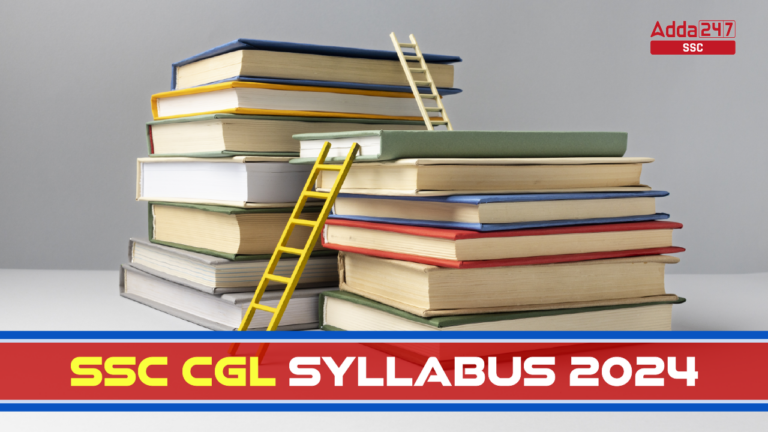
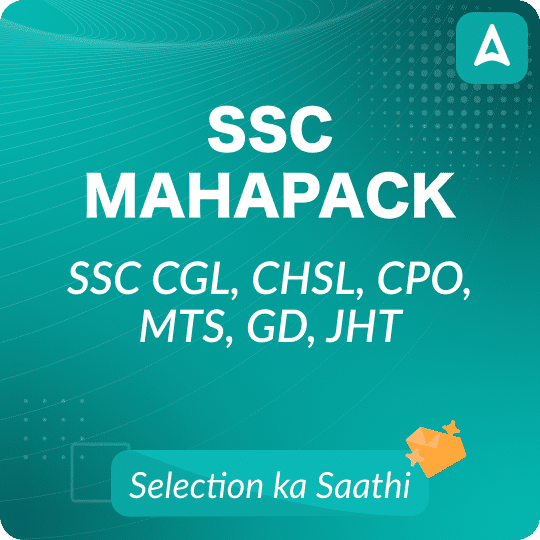

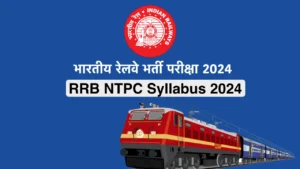 RRB NTPC सिलेबस 2024: डाउनलोड करें CBT 1...
RRB NTPC सिलेबस 2024: डाउनलोड करें CBT 1...
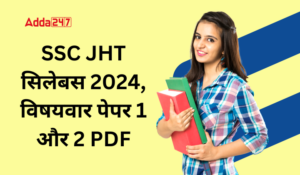 SSC JHT सिलेबस 2024, विषयवार पेपर 1 और 2...
SSC JHT सिलेबस 2024, विषयवार पेपर 1 और 2...
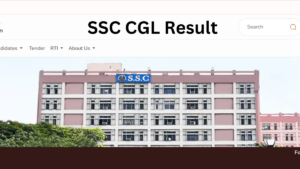 SSC CGL Result 2024, Expected Date and D...
SSC CGL Result 2024, Expected Date and D...



